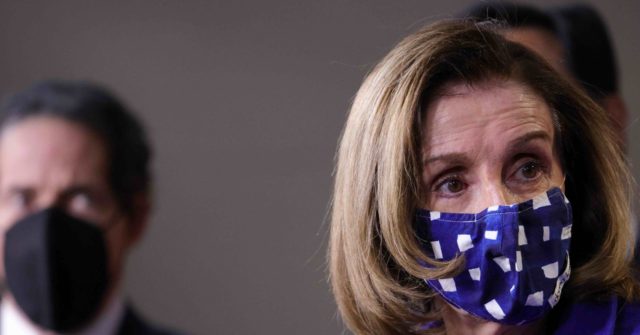

House impeachment managers argued Saturday, as throughout former President Donald Trump’s impeachment trial, that Congress is exempt from the Constitution.
Lead manager Rep. Raskin (D-MD) said that because this was not a criminal trial, the legal requirements for “incitement” did not apply, the right to due process did not apply, and even the cherished First Amendment did not apply. In effect, Raskin argued, Congress was exempt from following constitutional principles.
Last year, House Intelligence Committee Chair Rep. Adam Schiff (D-CA) made the same argument. Due process did not apply to the president in impeachment, he said, and therefore it did not matter that the president could not cross-examine witnesses, or call the so-called “whistleblower.” The House had clearly violated the president’s First, Fourth, Fifth, and Sixth Amendment rights, but Schiff told the Senate that Trump should have been grateful for the few protections he had.
That is not how Congress used to behave, nor how Americans saw Congress — until recently.
Several decades ago, there was a heated debate about religious displays on public property, such as Nativity scenes at Christmas. Civil libertarians argued that such displays were a violation of the First Amendment’s Establishment Clause. Many Jewish leaders agreed, drawing on a long and painful history in which Jews had suffered persecution in countries with official state religions.
But not all Jewish leaders opposed Nativity displays. One who dissented was the Lubavitcher Rebbe, Menachem Mendel Schneerson, leader of the Orthodox Chabad movement, who encouraged Jews to light Menorahs on public property during Chanukah.
Schneerson also supported prayer in public schools, which many liberal Jewish leaders opposed. He believed that indifference to religion among the contemporary public was a bigger problem than old medieval religious prejudices.
When Schneerson supported public religious displays, some fellow Jewish leaders were shocked, and outraged. One rabbi pursued a debate with Schneerson, wonderfully documented by Joseph Telushkin in his recent biography, Rebbe: The Life and Teachings of Menachem M. Schneerson, the Most Influential Rabbi in Modern History. He argued Jewish religious displays were “as much a violation of the constitutional principle of separation of church and state” as Nativity scenes.
Schneerson disagreed — citing Congress as an example.
No one who joined a Menorah lighting on public property could have “felt that his or her loyalty to the Constitution of the U.S.A. had been weakened … seeing that the U.S. Congress opens its [daily sessions] with a religious invocation, and surely the U.S. Congress, comprising each and every state of the Union, is the place where the Constitution of the U.S.A. should be most rigidly upheld,” he wrote (original emphasis).
That is how Congress ought to be seen by the country. That is how it ought to regard its duty to the Constitution — not as the exception to constitutional principles, but the exemplar.
As liberal constitutional scholar Jonathan Turley wrote last week, after Raskin threatened Trump, absurdly, if he refused to testify at the trial: “It is true that this is not a criminal trial. It is a constitutional trial. As such, the Senate should try an accused according to our highest traditions and values.”
Raskin, Schiff, and the Democrats told the Senate that they should ignore the principles of the Bill of Rights. As Trump’s lawyers noted in their rebuttal Friday, the House managers were effectively asking the Senators to violate their own oaths of office. That may or may not have been the reason the Senate ultimately acquitted Trump, both times.
Regardless, it is encouraging that Democrats’ efforts to trample the Constitution, while claiming to defend it, failed both times they tried.
Joel B. Pollak is Senior Editor-at-Large at Breitbart News and the host of Breitbart News Sunday on Sirius XM Patriot on Sunday evenings from 7 p.m. to 10 p.m. ET (4 p.m. to 7 p.m. PT). He is the author of the recent e-book, Neither Free nor Fair: The 2020 U.S. Presidential Election. His recent book, RED NOVEMBER, tells the story of the 2020 Democratic presidential primary from a conservative perspective. He is a winner of the 2018 Robert Novak Journalism Alumni Fellowship. Follow him on Twitter at @joelpollak.
Related posts:
Views: 0
 RSS Feed
RSS Feed

















 February 14th, 2021
February 14th, 2021  Awake Goy
Awake Goy  Posted in
Posted in  Tags:
Tags: 
















